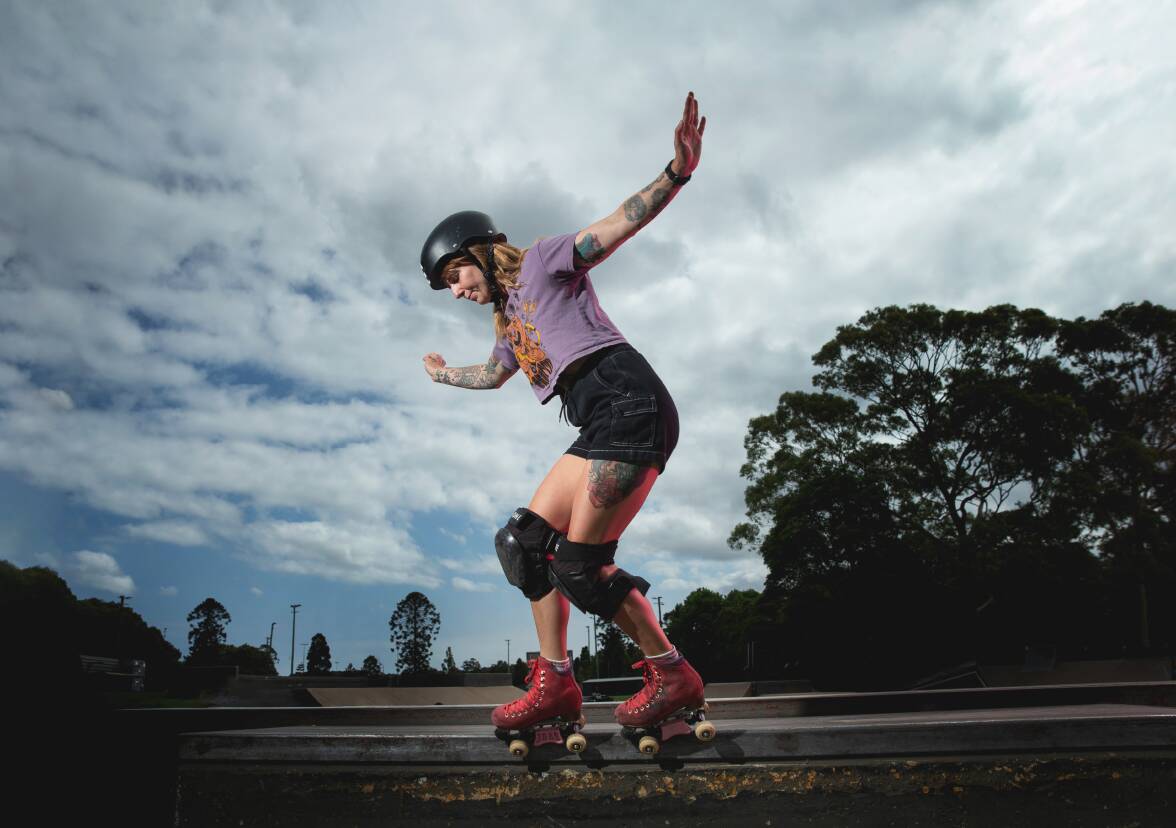
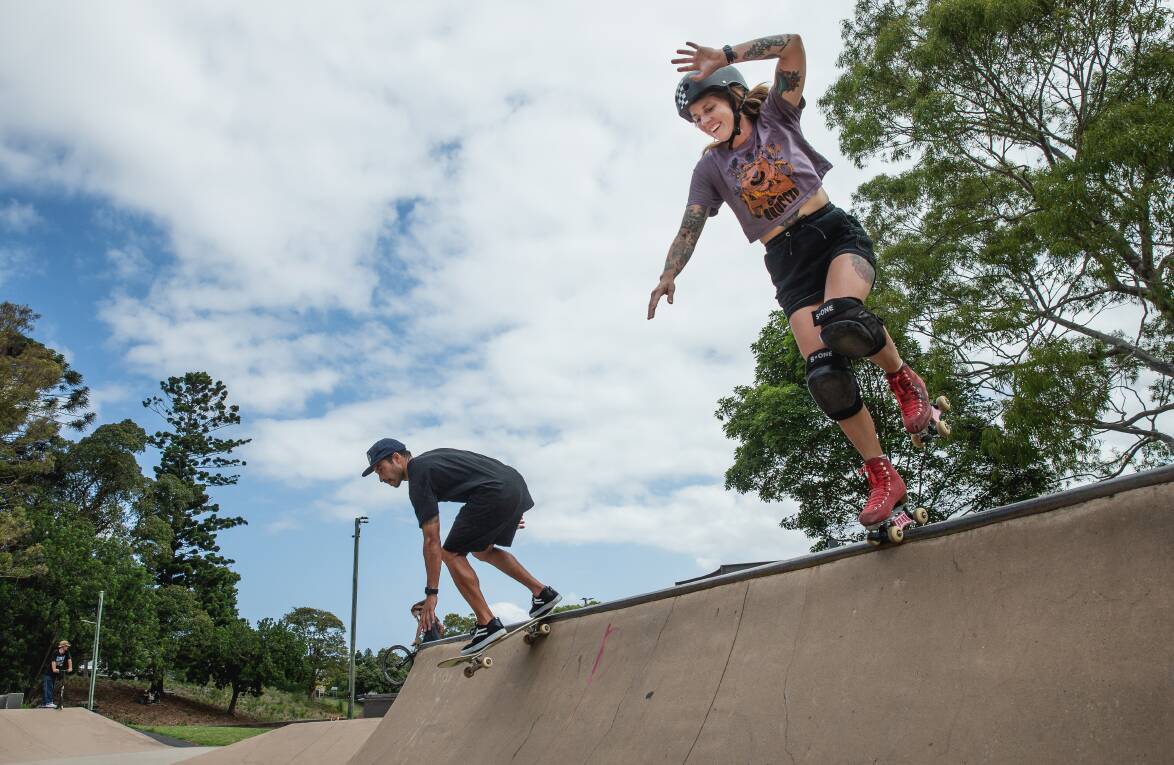
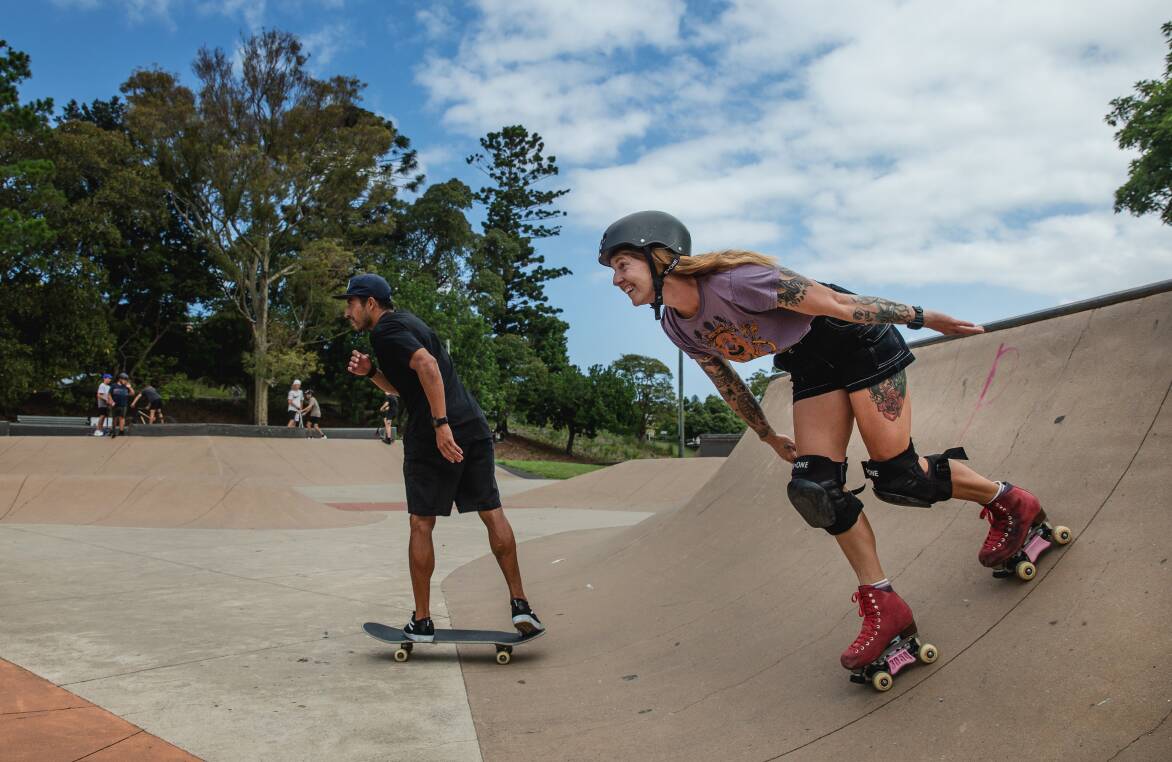
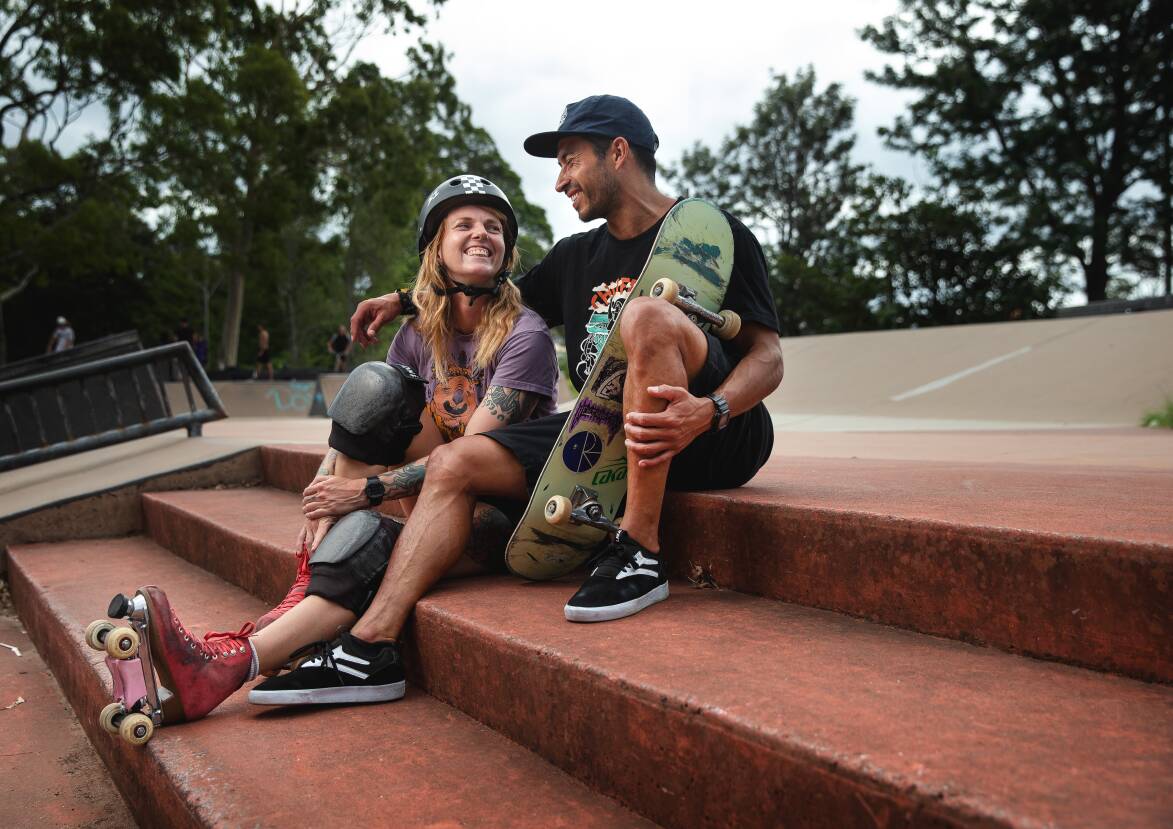
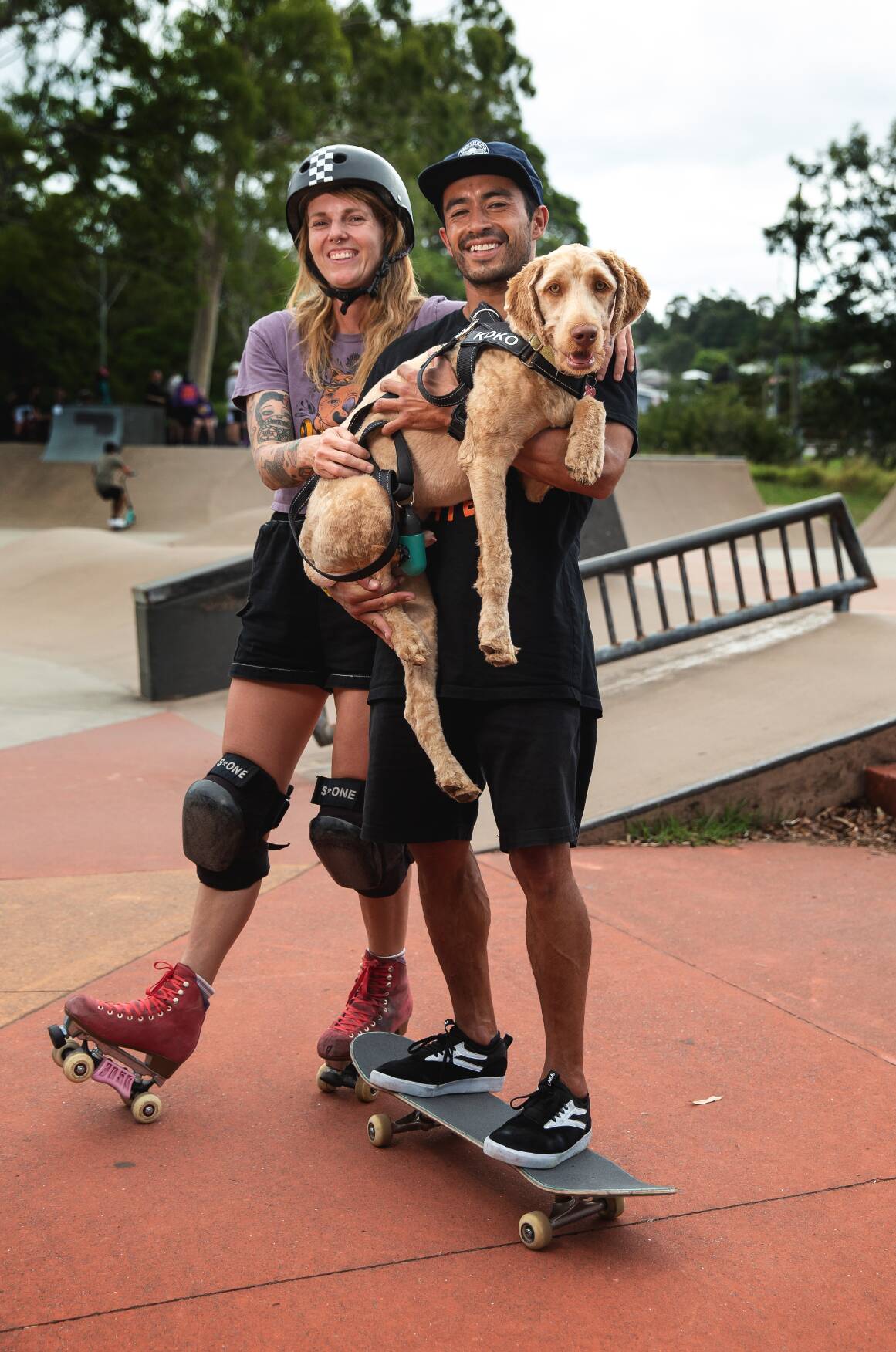
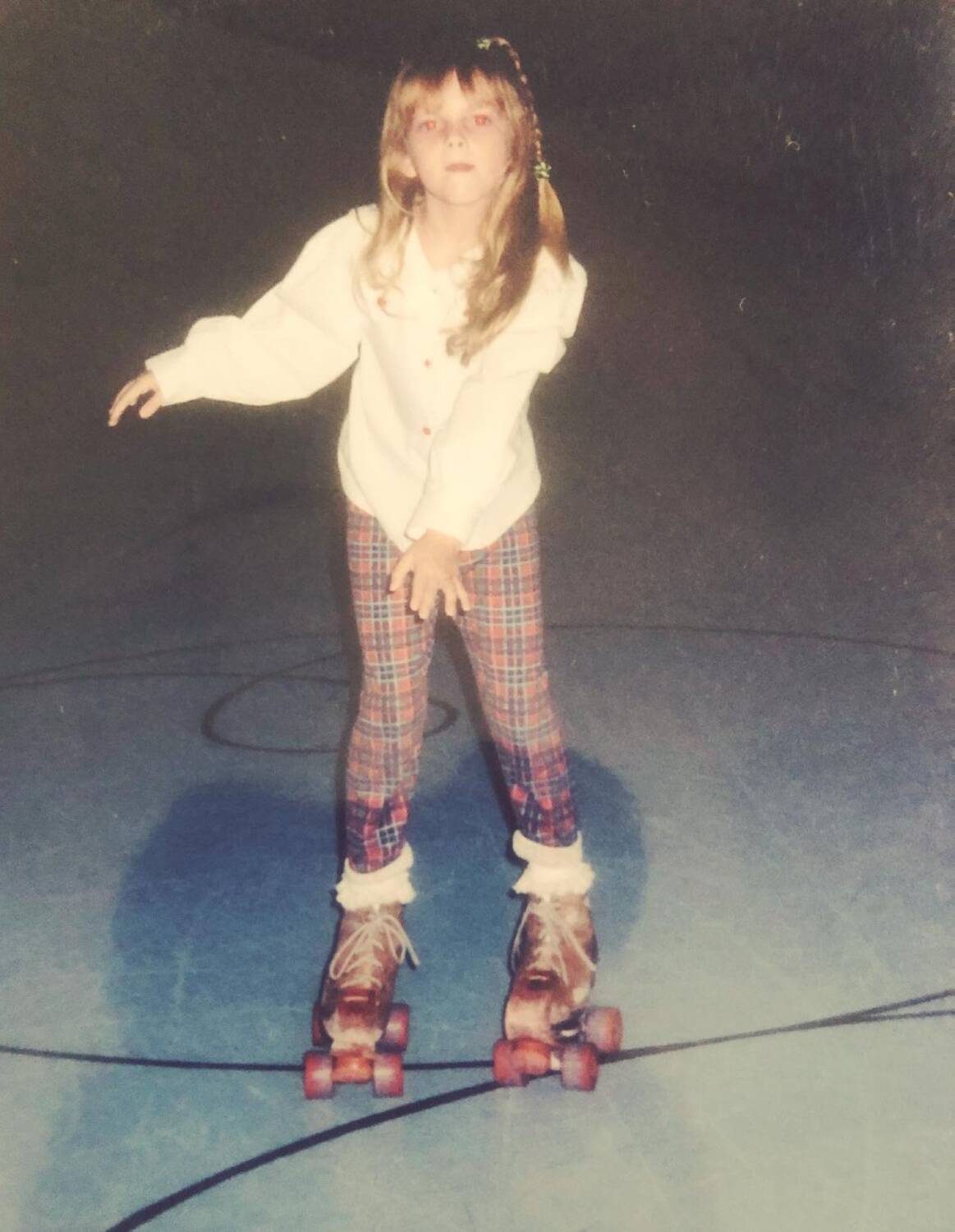
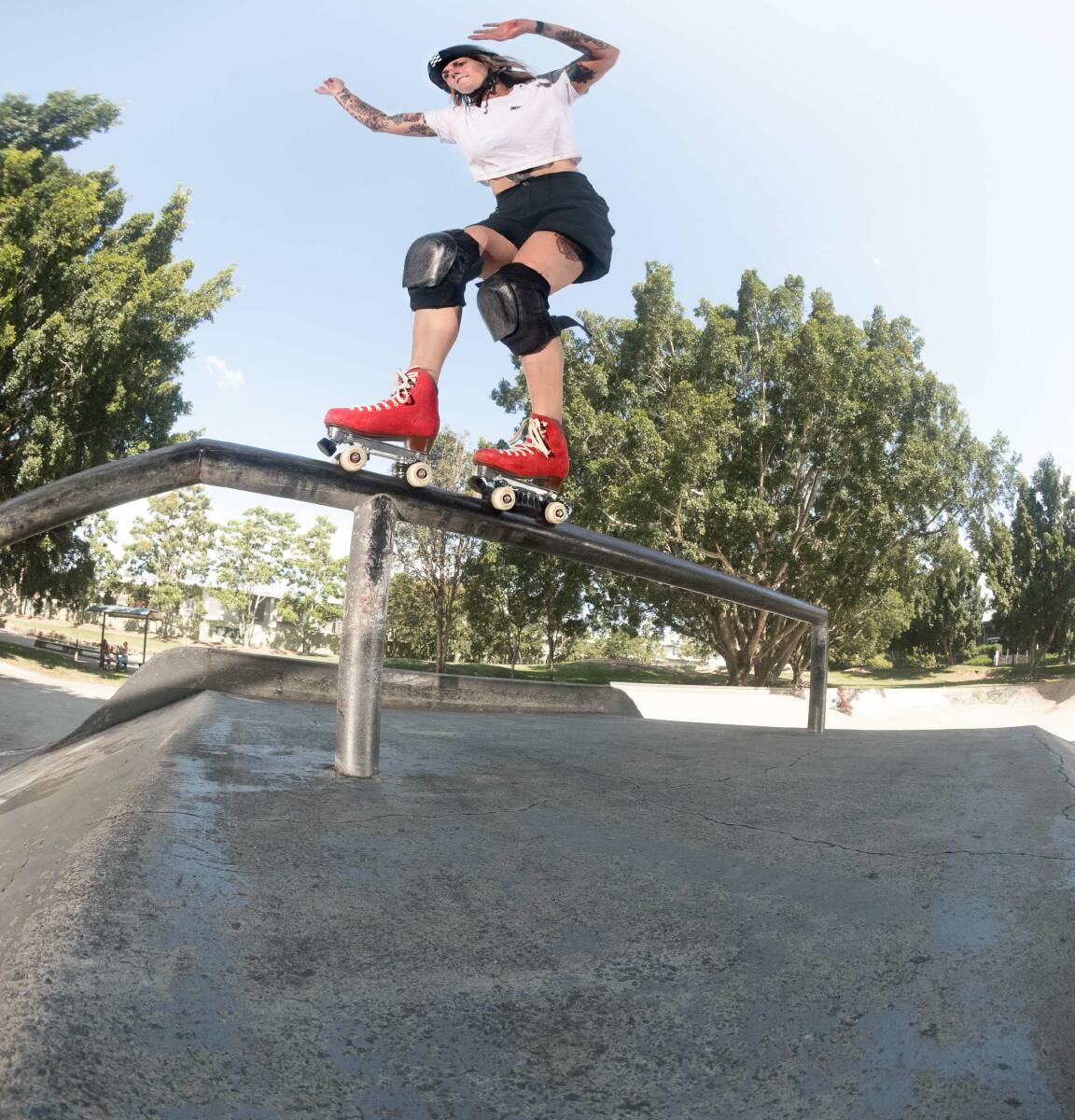
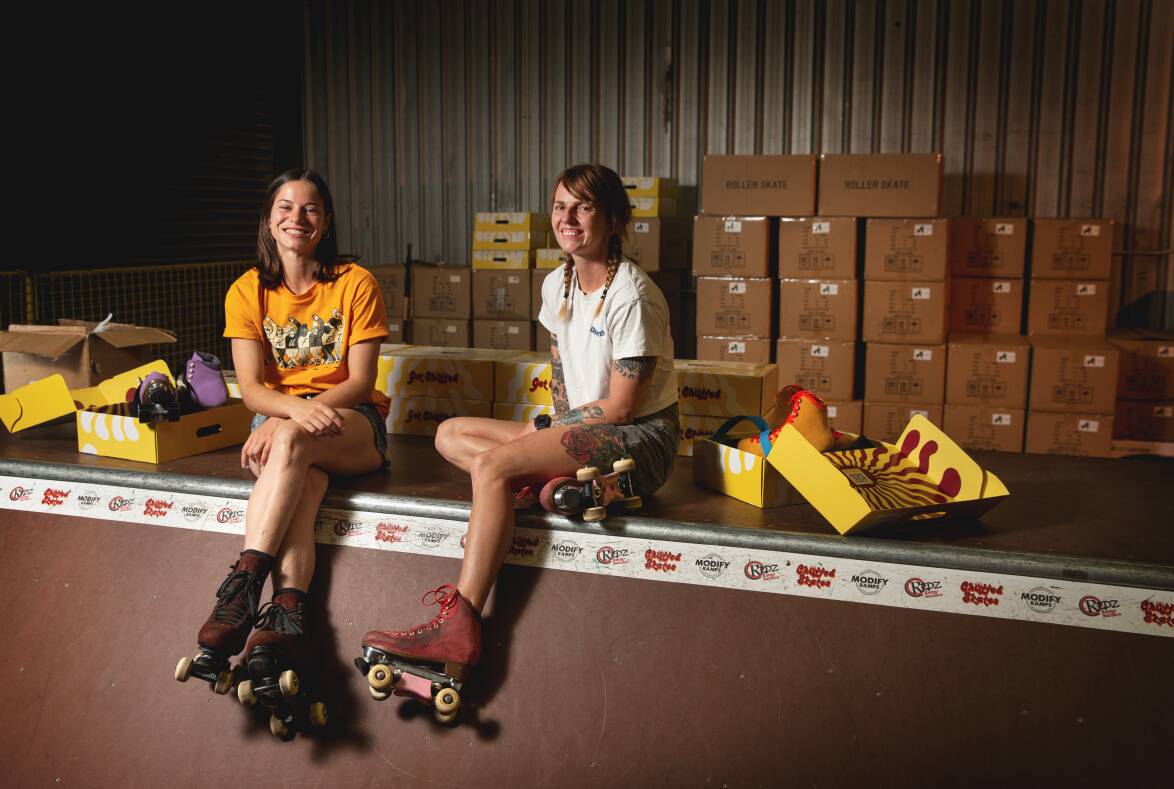
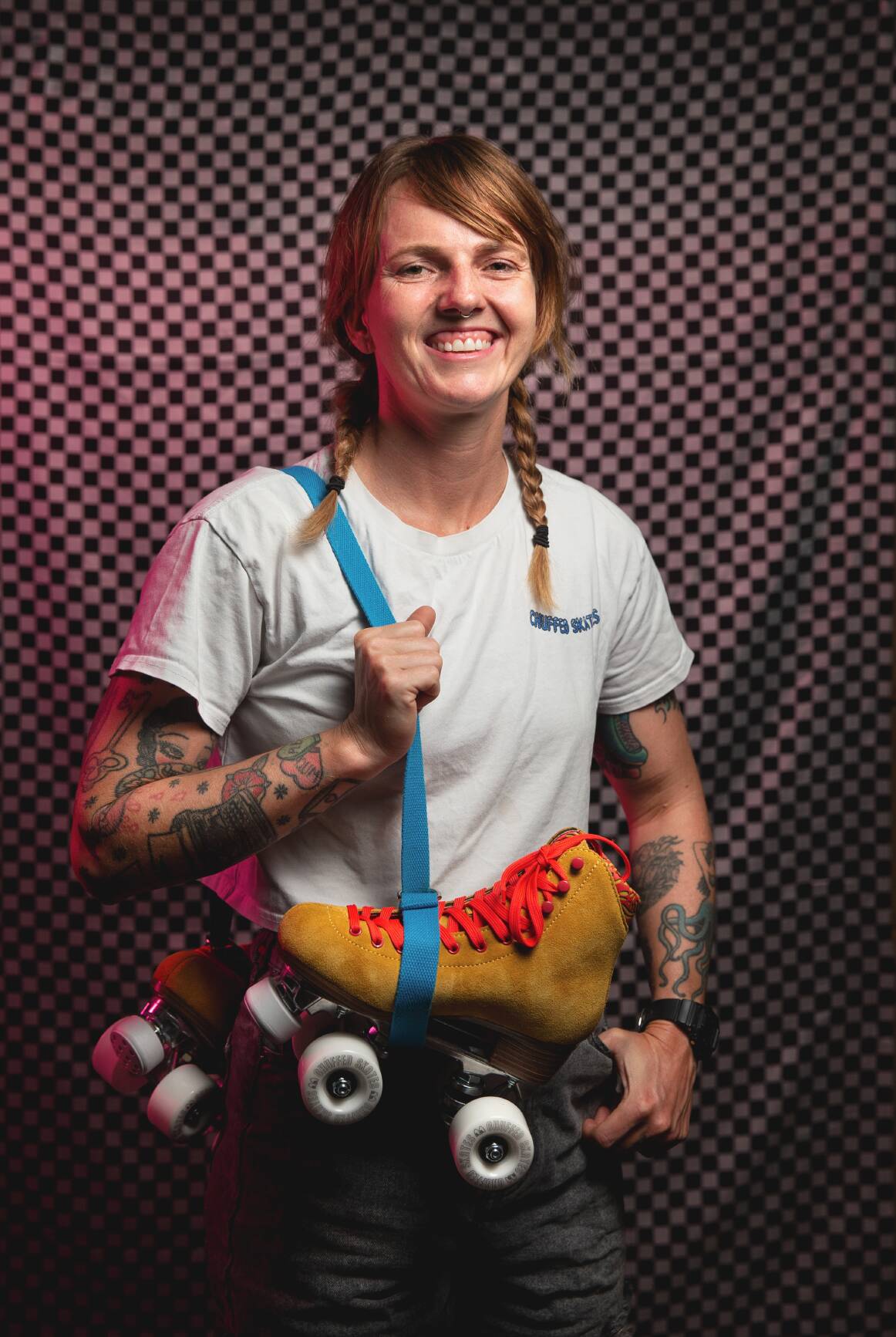
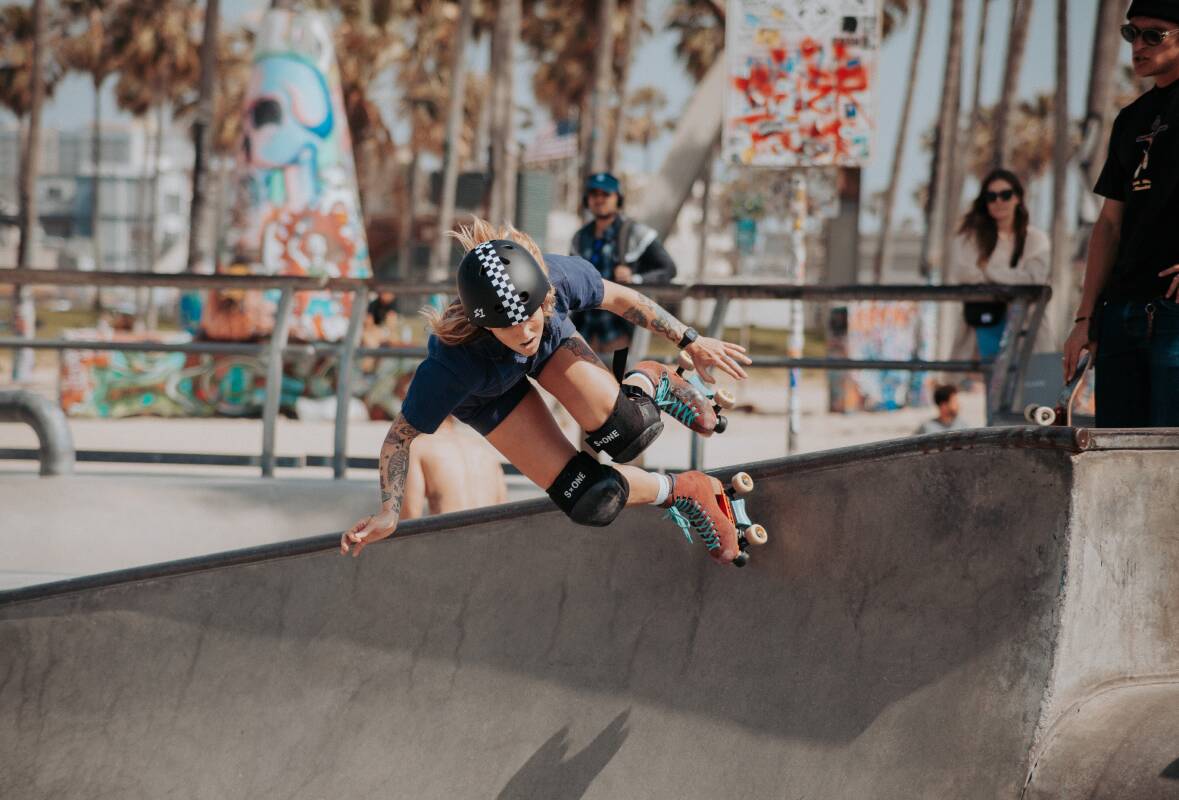
THERE was a time when Sam Trayhurn reckons she could name pretty much every person who was cruising on roller skates at their local skate park on the east coast of Australia.
"Now, the industry feels big," says the 35-year-old entrepreneur, whose petite, strong frame somehow seems purpose-built for the skate ramps she frequents.
"I can go across the road to my skate park and there will be two roller skaters I have never seen before. When that started happening, it was mind-blowing ... and I'd be the weird person who went up and started talking to them," she adds with a laugh. "There's a new generation of roller skaters who are coming through who don't know that it wasn't always this popular."
Like other open-air, recreational sports unfettered by lock-in membership contracts, roller skating made a comeback during the darkest months of the pandemic.
Caitlin Honey, the interim chief executive of Skate Australia, which represents skate sports including the roller skating contact sport known as roller derby, says the group is "excited" to see the growth of all roller sports and hopes to expand into the recreational roller skating space.
Skate NSW executive officer Gawaine Davis says the organisation, which celebrates 50 years in 2023, has doubled its membership numbers since 2019 (it now has 1127 members), a fact he attributes to the public's decrease in commitment to sport, but interest in the recreational space: "Skating seems to be popular again."
While Olivia Newton John (Xanadu) and Cliff Richard (Wired For Sound) captured the bliss of the free-wheeling pastime in the 70s, the Netflix hit Stranger Things and pop star Pink, who revels on eight small wheels in her latest music video, have more recently also spread the roller love.
The rise of the sport is music to the ears of Gold Coast-raised, now Newcastle resident Trayhurn, founder of roller skate lifestyle company Chuffed Skates.
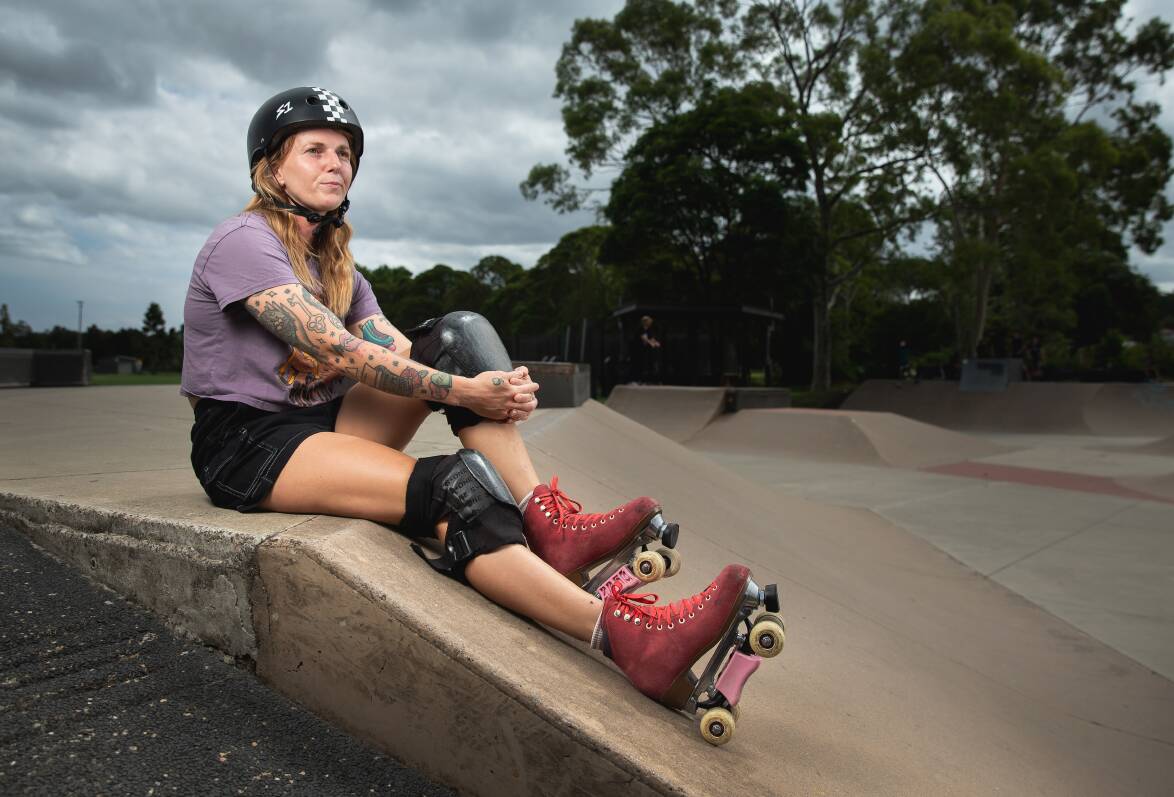
She was around five when she tried on her first roller skates, a white pair with red wheels gifted by her mum, who taught her some basic turns. An early skating memory is when she came a cropper on the steps of the old Queenslander that was home.
Her '90s childhood was spent at the Skaters Paradise rink in, complete with its disco lights, DJ announcer and fun of that era: "It was such a free feeling and it stands out from my childhood but sadly, as rinks do, it closed down in my teens."
Tayhurn, who has a communications degree and a Doctorate in creative writing, was a bookish, daydreamer of a kid, far from athletic. Somehow the challenge of mastering roller skating stuck.
"It has been the only sport I've been good at throughout my life," she says. "I am determined and even as a kid, if I focused hard I could get good at things. I took a shine to it and made myself be good at it. It didn't come easily."
Her core memory was the sheer joy of it, "that free feeling of going really fast and doing something you can't achieve on your feet. Not being a sporty kid, I had never had those sensations, all those endorphins and adrenalin and that's stayed in my memory. Like, 'Woah, it's really cool'."
A stint working in administration at Skate Australia on the Gold Coast in her twenties led Trayhurn to get involved in roller derby.
"I hadn't skated for years ..over your teens you drift away. But I joined a team and reestablished the passion," she says.
She played derby for five years and, during her PHd studies in Sydney, found herself haunting skate parks frequently and coaching Roller Fit.
Non-plussed about shifting into academia, Tayhurn began exploring the idea of starting a business. Skating had always crossed like boot laces throughout her life, she just had to figure out how to make it "sustainable".
"I started doing research to understand the landscape in Australia and most skates were being imported from the US because most of the big brands are there. That made it expensive, and it meant there were stock shortages. I realised there wasn't a brand that was dedicated to the Australian market," she recalls. "I knew all the positive things that roller skates had given me in my life - being fitter, happier and connecting to communities and travel - and I was passionate about sharing that. I thought if I created a brand I could get more people into skating but also improve their lives, I guess ... I decided to go all in."
Trayhurn found a manufacturer in China and had some samples made before settling on her range of heeled roller skates.
"The skates are an amalgamation of all the things I liked in skates I have used. I wouldn't say they are unique but one of the main things I wanted was that they were high quality for an affordable price, and that they were comfortable," she says. "At the start of COVID, so many skates coming into the market were poor quality."
She sold some shares she had bought in her early working years and injected $50,000 in her fledgling business: "On top of that, I did a pre-sale of products so some of them would pay for themselves. I raised enough to cover the first order, so if it didn't work the most I would lose was the investment."
Roller skating has a rich history in the USA and Europe and Trayhurn had witnessed a rise in participation in Australia.
Her timing in launching Chuffed Skates in January, 2020, on the eve of the pandemic, was impeccable.
"I started it in my house, all the boxes were scattered in different rooms and in my garage, it was just me. That became unsustainable in six months. It grew so fast. It as very overwhelming, in a nice way," she says. "It was the right moment, there were a lot of new roller skaters. We sold all our pre-sale skates and the next order and I realised it was bigger than what I thought would be: a side hustle."
Chuffed Skates is now a full-time, growing enterprise: Trayhurn is helped by her partner, Colombian native and professional skater John Bejarano, and has a marketing employee in Sydney, and two casuals who help in her rented Warners Bay warehouse.
Chuffed sells its skates and accessories online, through stockists in Australia including Skate Connection in Newcastle, and via distributors internationally (the US, Indonesia and New Zealand).
Trayhurn has an accountant/business advisor and says the company's turnover has increased almost 100 per cent every year since inception. The business is on track to sell 3000 pairs of skates this financial year.
She's had a steep learning curve and dealt with stressful market forces, including supply chain issues that brought production to a temporary halt. But she wouldn't want to do anything else. "I get messages from people saying they have taken it up and it has changed their lives," she says.
Trayhurn drops the word "values" regularly. It's clear that she wants to leave a footprint of goodwill in her community.
Chuffed Skates offers discounted skates for those experiencing financial hardship, and recently donated some skates to the community group 80's Skaties, that runs free 80's-themed skate sessions on Friday nights at Speers Point.
The business also has a "homebase crew" initiative, giving a portion of its sales from certain roller skates to emerging and talented skaters.
"Roller skating and social media are really entwined and I have seen a lot of brands use content from skaters and...they have historically not been paid for it. It's an exchange where it's assumed the roller skater will get a profile but the brand is profiting," she says. "I've been asked to do work for brands for free and I got to the point where it was like, 'I value my time, and the time and energy of others, skating isn't easy, it's harder than many jobs, people invest time to get good at it and they deserved to be rewarded'," she says. "I want to show the industry that it will be an expectation if you want to use people in your marketing that not everyone will do it for free."
In the start-up realm, Trayhurn says, punters "think you have a goal to sell for millions".
She wants to play a continuing role in her company's growth.
"I can't imagine selling it to anyone else, I don't know I trust anyone else in the industry would have our values. I feel a responsibility to keep making it better," she says. "I don't know exactly where it's going, but I trust our decisions will take us in the right direction."
Bejarano, who she met in a Sydney skate park five years ago, has been her anchor.
"John has been there since day one and has listened to all my anxieties late at night when things aren't going quite right, and has also helped solve so many problems we have had along the way," she says. "He has a way of giving me a fresh outlook on a situation that comes from outside the roller skating world, and that has been so helpful. I wouldn't be where I am without his support."
Trayhurn says roller skating is appealing for its joy factor and its portability.
"Because the pandemic meant so many gyms and sports weren't operating people were looking for something... roller skating is good because you can take to any hard surface, do it and feel good," she says, adding that those lacing up ranged from young people influenced by social media to mums and daughters, and guys and their partners.
Few can earn a living from professional roller skating, however the opportunities are growing - particularly overseas. Gender prize money parity has been a vexed issue in many sports, not so in roller land.
"In my experience, roller skating has predominantly been participated in by females and gender non-conforming people. In all the competitions I've seen, either the category is non-gendered or the prize money is the same. Roller skating is really inclusive with trans and non-binary participants. There is an aversion to gendered categories," she says.
Trayhurn recently competed for the first time in a Californian roller skating event called Quad Cup ("I did OK, I'm not the most competitive person ...") and skates thrice weekly, alongside surfing.
Trying to capture the free-wheeling joy and community vibe that roller skating has imbued in her life for decades is her goal.
"Having a really inclusive brand that had a broad representation of people was important from the beginning because I felt roller skating [has been] sold as a young, pretty, predominantly white female sport, which didn't reflect the community I knew," she says. "I wanted to make sure that people would see ... maybe see someone who looked like them and make them more likely to try it. Joy is ... central to everything we do, because roller skating is a former of exercise but above all it makes you happy."







